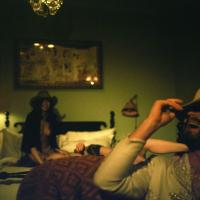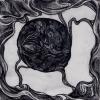Phosphorescent: Muchacho
Dead Oceans

Muchacho, Phosphorescent's sixth album and fourth for the Dead Oceans imprint, could stand as the project's pinnacle, a self-raising status that peaks with each new LP. 2007's Pride translated Phil Elverum's rustic despair into an alt-folk bent on violence in nature. The LP hosted one of the project's finest moments with "Wolves," a gorgeous dirge set to lyrics that match Cormac McCarthy at his most Southern gothic. Follow-ups To Willy and Here's to Taking it Easy were decidedly lighter affairs, the former serving as Houck's homage to Willie Nelson. But Muchacho ventures back into darker territories while keeping a jovial approach to love lost and damage done.
Lead single "Song for Zula" starts off unassumingly enough, a wistful waltz seemingly tailor-made for the first dance at a wedding, charmingly produced and slow in tempo. Houck quickly fans the flames of irony, juxtaposing the mode as a bitterly resolute meditation on love's casualties by recounting, "I saw love disfigure me into something I am not recognizing."
The story continues on tracks like the jubilant "Ride On / Right On" and the revelatory "A Charm / Blade," with yelled epiphanies and chanted melodies. "The Quotidian Beasts" and "A New Anhedonia" carry the heavy-browed slant that forms the foundation of Muchacho, Houck's finest and most fully-formed LP yet.
Keywords
More by Bobby Power
-

Andy Gill and the One-Man Legacy of Gang of Four
Monday, Oct. 26 @ 40 Watt Club
-

-

Kevin Greenspon
Thursday, Oct. 1 @ Go Bar









comments